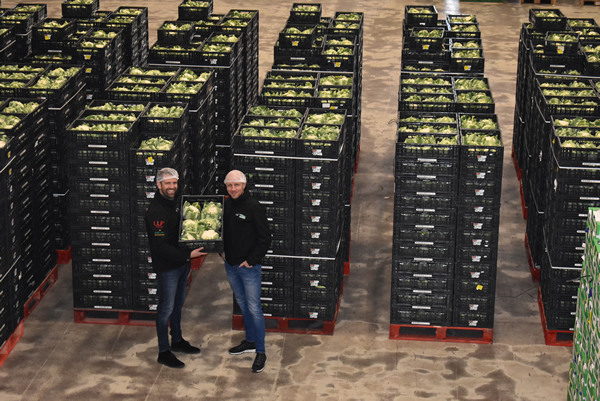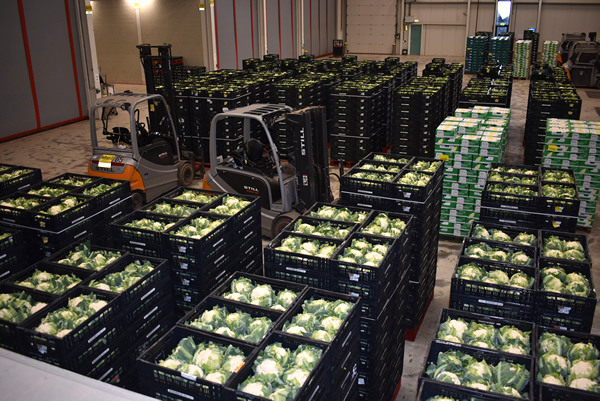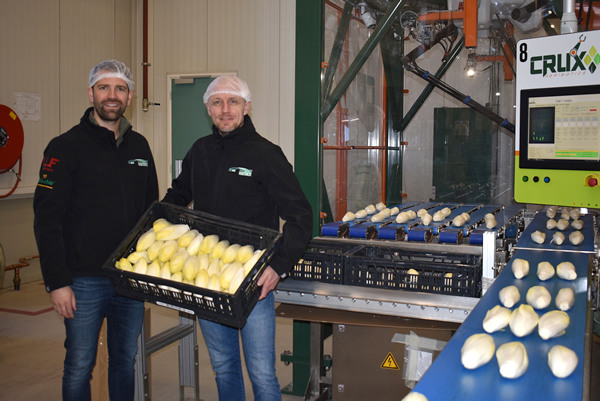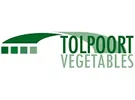In Europe, the Spanish and French cauliflower supply has been limited for weeks. According to Jurgen Ratelband and Danny Duijs, Tolpoort Vegetables' sales representatives, there is no end in sight yet, either. "Everyone had hoped the supply would pick up a bit more," begins Danny, "but frost hit the Spanish growing areas again. We'll still get some Spanish cauliflower this week, but it's uncertain how the supply will develop after that. Volumes from France are also still very limited."

"Fortunately, with Firma Laan, we have a cauliflower grower with a large acreage in the Andalusian region. That, at least, gives us access to the product. It's not nearly enough to meet demand, but we can, at least, supply our regular customers. Also, Spanish acreage has shrunk considerably. There's much competition for valuable arable; for example, plenty of sunflowers are being grown this year. Last year's low prices and higher costs led to decreased cauliflower cultivation," says Danny.
Neither are there many alternatives at the moment. "Where necessary, we buy cauliflower from France. Morocco has some, but that cauliflower doesn't meet our clients' quality and certification requirements. The Dutch winter cauliflower supply starts in mid-April, with some of it lost to the December frost."

Product availability becoming increasingly challenging
Tolpoort Vegetables' retail contracts for the Dutch cauliflower season usually start in early June, with Spanish cauliflower contracts expiring in early May. "At this point, it's hard to say how that transition period will work out. Product availability is generally becoming increasingly challenging. There are more weather extremes. Last summer, we coped nicely with the heat-induced shortages in the United Kingdom; we can't do that now in the Spanish season. In Spain, water availability is hugely challenging for all growers, too," Danny states.

With chicory, where Tolpoort Vegetables is also a Dutch market leader, the year-round supply is considerably stabler. "But, there's movement there too. The Belgian chicory acreage, in particular, will probably decrease considerably. Agricultural policy means the battle for land has begun there, too," Jurgen adds.
Chicory campaign badly needed
"Luckily this year's chicory prices are much better than last year's awful ones. We're happy with the campaign that's being prepared to increase chicory consumption; it's badly needed. It's mostly people over 40 that eat chicory. Real action is, thus, needed to keep chicory popular. Fortunately, early this year, shoppers began buying more chicory because of all the other vegetable shortages."

Danny and Jurgen
The Tolpoort Vegetables cooperative is only 18 months old. "It went fast," laughs Jurgen. "In a short time, we've established a solid foundation. We paid a lot of attention to that in the first year. Thus, we found ourselves fortunate that supermarkets immediately joined us."
"We now have a clear market position, and that's not gone unnoticed. Local and overseas supermarkets are approaching us. Dutch retail represents most of our sales, but we also export to places like Germany, Scandinavia, and Italy via our sales team and exporters with networks in those countries."
In its first year, the cooperative focused on cauliflower, broccoli, and chicory. Now it wants to expand its package with other full-soil vegetables. "For example, this year, we're selling Brussels sprouts from a grower with several hundred hectares. We also have red cabbage available from one of our growers. Those fit perfectly in with our package," Jurgen concludes.
 For more information:
For more information:
Danny Duijs / Jurgen Ratelband
Tolpoort Vegetables
7 Tolweg
1616 AT, Hoogkarspel, NL
Tel: +31 (0)228 565 781
Email: verkoop@tolpoort.com
Website: www.tolpoortvegetables.com
